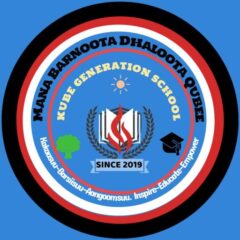Irrecha (Irreechaa)
What is Irreechaa or Irreessaa? Who Celebrate Irrecha? 
Irrecha is an Oromo holiday. It is also called Irressa. It is a thanksgiving of an Oromo people mainly in Ethiopia and Neighboring. Irrecha an Oromo thanksgiving known as a symbol of peace, unity, and love even increasingly celebrated every year throughout the world where Oromo diaspora communities live. The Oromo people in Oromia/Ethiopia and elsewhere celebrate Irrecha to thank Waaqaa (God). For the blessing and mercies, they have received throughout the previous year. In Oromia, Irrecha celebrated highly at Bishoftu the sacred land of Hora Harsadi (lake Har Sadi) and Finfine City. In Many Oromia regions at its lakes, rivers, and mountains. The Irrecha festival is celebrated every year at the beginning of birraa which is the sunny season after the dark- rainy winter season. It is celebrated around the world where the Oromo diaspora lives especially in North America, Europe, the Middle East, and Australia. Oromo People consider the winter rainy season of the year to September as the time of difficulty. The heavy rain during winter which associated with things like wind, swelling rivers, and floods that may affect the daily life of people, livestock, crops, and flood homes. During this period, as a result, the family relationship will also sever. They can’t visit each other, due to heavy rain and flood. In addition, the winter could be a time of economic difficulties or hunger for some people as a matter-of-fact previous harvest collected in January may run out and harvest is not ripe yet. Therefore, some families may endure a shortage of food during wintertime. In birraa (the season of Winter in Oromia), this shortage will end as many crops ripe, and so the families can eat their fill. Furthermore, some diseases such as malaria which usually break out during the rainy season would go as winter ends. So, Oromo may see the winter as a difficult time but it does not mean the Oromo people do not like rain or the winter season at all. For example, any time when a shortage of rain or famine occurs Oromo people pray to Waqaa (God) for the rain. In general, the Oromo People would celebrate the Irrecha or its thanksgiving to mark the end of the rainy season, known as Gana. This holiday calendar was established by Oromos’ forefathers in the time of Gada Melba. The dark time of starvation and hunger- was established on the first Sunday of the last week of September or the first Sunday of the first week of October according to the Gada lunar calendar which was designed as a national thanksgiving day by modern-day Oromo people. The Irrecha celebrated across Oromia, and especially at sacred land Hora Har Sadi, Bishoftu. According to Oromo elders, Irrecha is one of the ancient ceremonial events taking place twice a year since the existence of the Oromo nation. Irrecha constitutes one of the cultural and religious practices defining the hallmark of the entire Oromo life. It has promoted and enhanced an understanding and unity among the Oromo people. It has built their common values and shared visions, consolidated peace, tolerance, and resilience. During Irrecha, the Oromo pray to Waqaa (God) for peace and stability to prevail, prosperity and abundance to exist, and law and order to be maintained. Also, the environment to be protected. Despite many challenges, the growing number of participants every year at the Irrecha festival shows, the growing Oromo nationalism is absolutely true. For instant, at the Irrecha festival, verities of cultural dressing and songs including associated joys, happiness, and other events which indicate Oromo people’s emotions and historical social bonds are self-evident of Oromo nationalism or Oromumma. Apart from its cultural and religious functions, Irrecha symbolizes the unwavering unity and solidarity among the Oromo nation in Oromia (Ethiopia) and elsewhere in the world. In 2019, for the first time after 150 years ago banned from Capital, Irrecha an Oromo thanksgiving holiday was celebrated in the nations and Oromia State Capital Finfine followed by Irrecha in Bishoftu as the result of the Oromo struggle. The year 2019 Irrecha was celebrated in large numbers both In Finfine and Bishoftu, however, in 2020 due to political tensions and the Covid 19 pandemic, it was celebrated in less number. This year of 2021, Oromo people celebrated Irrecha in large number more than previous years in Oromia State Capitol Finfine, and at sacred land- Hora Har Sadi located in Bishoftu. Also, across Oromia regions, and around the world more than ever where the Oromo community exists.




http://https://youtu.be/xSfb_RzrEzU?t=4




